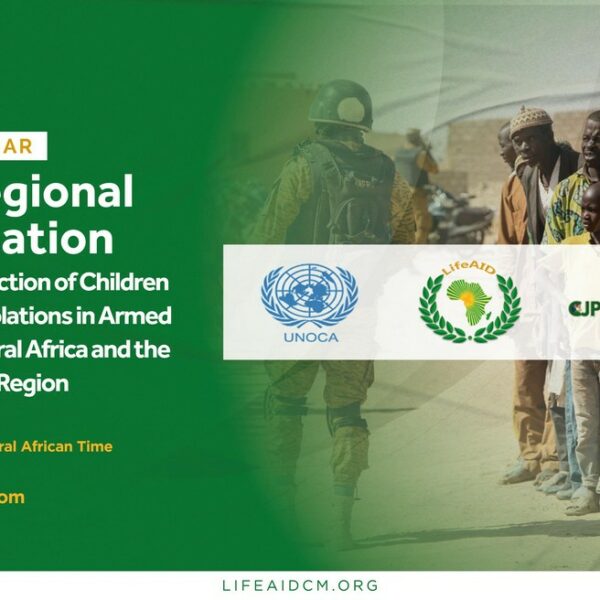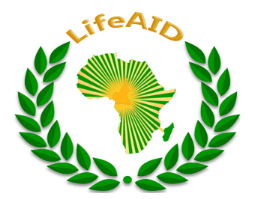
- This event has passed.
The Protection of Children against Major Violations in Armed Conflicts in Central Africa & the Liptako Gourma Region
INTER-REGIONAL CONVERSATION
Topic: The Protection of Children against Major Violations in Armed Conflicts in Central Africa & the Liptako Gourma Region
Date: July 17, 2024 Time: 15:00 – 17:00 Central African Time
Venue: Virtual, Via Zoom (REGISTER HERE)
1. Context
In different parts of the world and especially in Africa, there are a plethora of socio-political upheavals some resulting in armed conflicts or civil unrest. The collateral effects of these conflicts and insecurity at multiple fronts have over the years shouldered on children and youths. In his 2023 report on children and armed conflict, the UN Secretary General Antonio Guterres declared: “In 2022, children continued to be disproportionately affected by armed conflict, and the number of children verified as affected by grave violations increased compared with 2021”[1]. These violations include recruitment and use, abduction, killing and maiming, rape and other forms of sexual violence.
In fact, ongoing conflicts and hostilities on the African continent and especially in Central Africa, the Lake Chad Basin (LCB) and the Liptako Gourma Region (LGR) have had a devastating impact on children. For example, in the Central African Republic, the UN verified 437 violations against 321 children (179 boys, 142 girls), including 47 children who were victims of multiple violations[2]. In DRC, 3,377 grave violations against 2,420 children (1,680 boys, 740 girls) were verified. In addition, 981 violations against 792 children (558 boys, 234 girls), including abductions (579), sexual violence (200), recruitment and use (152), killing and maiming (32), attacks against schools and hospitals (17) and denial of humanitarian access (1), that had occurred in previous years were verified in 2022[3]. In Cameroon, The UN verified 156 violations against 111 children (47 boys, 58 girls, 6 sexes unknown), including four girls who were victims of multiple violations. In addition, eight grave violations affecting eight children (3 boys, 5 girls) that occurred in 2021 were verified in 2022[4]. Still worst, over 74 schools have been burnt in the English speaking regions of Cameroon with over 80% completely closed down. In the Lake Chad basin, armed groups recruit large numbers of child soldiers every year. Between 2017 and 2019, the United Nations (UN) documented the recruitment and use of at least 1,385 children by Boko Haram[5]. In the Liptako Gourma region, Burkina Faso, Mali and Niger are suffering from a serious security crisis in the face of armed and jihadist groups. The main strategy used by the latter is based on the recruitment of children. For example, in the Liptako-Gourma region, growing insecurity has led to massive population displacements. Out of 1.4 million people and refugees in Burkina Faso, Mali and Niger, 55% are children (GERM-UGB, 2021: 5). For the particular case of Burkina Faso, in 2019, there were 61.13% of internally displaced children. Children over the age of 5 account for 43.92%, while those under the age of 5 make up a proportion of 17.20% (MENAPLAN, 2019: 17). This situation is seriously disrupting social services already weakened by insecurity, including education. As of February 15, 2019, 1135 schools have been closed in Burkina Faso with 154,233 students out of school. The proportion of girls affected by the impact of insecurity is 48.5% (MENAPLAN, 2019: 15). The trend in Liptako-Gourma is that more and more children are victims of abductions, killings, recruitment and use by armed groups. In Mali, more than 270 children were maimed or killed in 2019 (GERM-UGB, 2021: 5). These situations as such, are not much different in the Liptako Gourma region, the lake Chad Basin and in Central Africa. Given this, the radicalization and recruitment of young boys by armed groups and sexual violations against girls can no longer be underestimated.
To better streamline actions towards the protection of children, the UN Security Council Resolution 1612 (2005) was adopted. Several milestones have been recorded across different African countries like the training of law enforcement officers on child protection including in the North-West region of Cameroon in cooperation with the United Nations in 2022; the adoption in Nigeria of the Child Rights Act in Yobe State in June and in Adamawa State in July 2022; In Mali, the adoption by the transitional government of a decree on compensation for human rights violations provided 529 children with reintegration support[6] while in CAR, the government adopted in April 2022 a national plan against trafficking of children, focusing on preventing the use of children by FACA. Despite the advancement made in enforcing and implementing resolution 1612 (2005), it is unfortunate that more is still left to be done to protect the rights of children and to prevent major violations against them including sexual violation and recruitment in armed conflict in line with the Sustainable Development Goals.
For this reason, LifeAID whose traditional goal is to catalyze peace, security, and development processes, and the Coalition on Youth, Peace and Security in Central Africa (CJPAC) in partnership with the United Nations Regional Office for Central Africa (UNOCA), and the collaboration of the Office of the Special Representative Secretary General of the United Nations (SRSG) for Children and Armed Conflict; the United Nations Office for West Africa and the Sahel (UNOWAS); the United Nations Office for West Africa and Sahel (UNOWAS) and the Liptako Gourma Development Authority (LGA), are organizing an inter-regional conversation to contextualize major violations on children in Central Africa, the Lake Chad Basin and the Liptako Gourma Region and to mobilize stakeholders to the development and implementation of concrete actions in the concerned regions.
2. Objectives
The main objective of this interregional conversation is to engage stakeholders and actors to assess advancements made on the protection of major violations against children inform and guide the development of adapting entry points in effective child protection in Central Africa and the Liptako Gourma region.
Specifically, it aims to:
- Analyze policy frameworks; the nature, stakes and consequences of major violations against children in conflicts in Central Africa and the Liptako Gourma region;
- Facilitate exchange of experiences and lessons learned between CSOs and stakeholders active in the area of children protection; and
- Develop key entry points for concrete and adapting actions, engage an inter-regional network of civil society actors and stakeholders to develop and implement effective actions within the “Act to Protect Children in Armed Conflicts (ACTProC) program”, to sustainably protect the rights of children and prevent major violations against them in Central Africa and the Liptako Gourma region.
3. Expected Outcome
- Awareness of policy frameworks and understanding of advancements made in their implementation with the need to develop new adapting efforts and strategies to protect children in insecure and conflict affected areas;
- Increased understanding of diverse realities in Central Africa and the Liptako Gourma region and how to take more effective actions to prevent grave violations against children;
- Key strategies and recommendations identified for successful implementation of various frameworks and initiatives including the “Act to Protect Children in Armed Conflicts (ACTProC) program”, within the Central African and the Liptako-Gourma regions.
4. Target audience
This experience sharing is open to civil society actors working on the protection of children in armed conflict, national and regional institutions including UN agencies.
Number of participants targeted: 500
5. Methodological Approach
The two-hour knowledge sharing session will be held virtually, in order to broaden its reach across the two regions. It will be in a dialogue format to promote the exchange of ideas, experiences and perspectives.
The opening session will have key high level officials make various remarks to guide and open the conversation. As such, an opening remarks will be presented by LifeAID’s Chair and Coordinator of CJPAC – Ngen Yves; a remark from H.E. Hawa Aw – Executive Secretary of the Liptako Gourma Authority (LGA); a remark from Ambassador Mamman Nuhu, Executive Secretary of Lake Chad Basin Commission; a statement from H.E. Kapinga Yvette NGANDU, Commissioner for Gender Promotion, Human and Social Development – ECCAS; a remark from H.E. Leonardo Santos Simão, SRSG for West Africa and the Sahel, Head of UNOWAS; followed by H.E. Gilles FAGNINOU, Regional Director of UNICEF for West and Central Africa; H.E. Nouhoum Sangaré, Regional Representative of the Office of the High Commissioner for Human Rights (OHCHR) and Director of the United Nations Centre for Human Rights and Democracy in Central Africa (UNCHRD-CA) and a remark from H.E. Abdou Abarry, SRSG for Central Africa, Head of UNOCA. H.E Virgina Gamba, SRSG for Children and Armed Conflict, will open the conversation with an overview on Children and Armed Conflict, trends, challenges and prospects. Selected civil society actors and practitioners will follow with the sharing of their work, experiences and best practices.
VII. Contacts
United Nations Regional Office for Central Africa (UNOCA), Ms. Marilyn Ngum Fru, ngumfru@un.org; Mr Narcisse Dongar (dongar@un.org); LifeAID – Mr Ngen Yves yves.ngen@lifeaidcm.org / info@cjpac.org (+237) 222 318 639 or (+237) 675 117 506.

